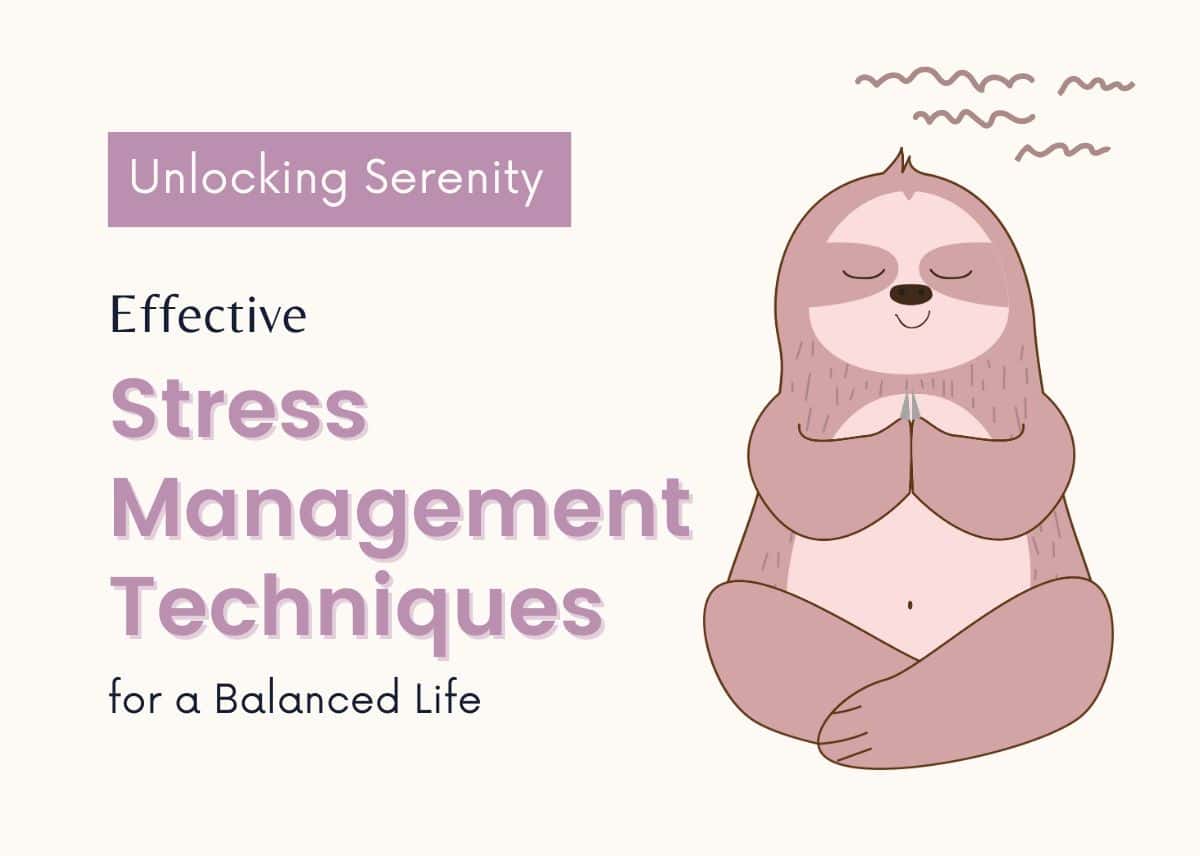In the hustle and bustle of modern life, stress has become an unavoidable companion for many Americans. Juggling work, family, and personal commitments can take a toll on our mental well-being. However, mastering stress is not only possible but crucial for maintaining a balanced and fulfilling life.
Table of Contents
In this comprehensive guide, we’ll explore effective stress management techniques that can be seamlessly integrated into your daily routine.
Understanding Stress
Before diving into the techniques, let’s briefly understand what stress is. Stress is the body’s natural response to challenges or threats. While short-term stress can be motivating, chronic stress can have detrimental effects on both physical and mental health. It’s essential to develop a toolkit of strategies to cope with stress and prevent it from overwhelming our lives.
Identifying Stress Triggers
The first step in effective stress management is identifying the sources of stress in your life. This can vary from person to person and may include work pressure, relationship issues, financial concerns, or health challenges.
Self-Reflection: A Key to Uncovering Stressors
Take a moment for self-reflection. What situations or environments tend to trigger stress for you? By pinpointing these stressors, you can develop targeted strategies to address them.
Stress Management Techniques
Now, let’s delve into practical stress management techniques that can be tailored to suit your lifestyle.
1. Mindfulness Meditation

Mindfulness meditation is a powerful technique to bring your attention to the present moment. It involves focusing on your breath, sensations, or a specific object. Regular practice can enhance self-awareness and reduce the impact of stressors.
Tip: Allocate just 10-15 minutes a day for mindfulness meditation to experience its long-term benefits.
2. Exercise for Stress Relief

Physical activity is a natural stress reliever. Engaging in regular exercise releases endorphins, the body’s feel-good hormones, and helps reduce cortisol levels, the primary stress hormone.
Important: Find an exercise routine that you enjoy – whether it’s jogging, yoga, or dancing – to make it a sustainable part of your routine.
3. Time Management Strategies

Proper time management can significantly reduce stress. Break down tasks into smaller, manageable steps, prioritize, and set realistic deadlines. This approach prevents the feeling of being overwhelmed by a mountain of responsibilities.
Key Point: Learn to say no when necessary to avoid overcommitting yourself.
4. Social Support Networks

Building and maintaining strong social connections is vital for stress management. Share your thoughts and feelings with friends or family, as talking about what’s on your mind can be incredibly cathartic.
Note: Surround yourself with a positive support system that uplifts and encourages you.
5. Relaxation Techniques

Incorporate relaxation techniques into your daily routine, such as deep breathing exercises, progressive muscle relaxation, or guided imagery. These methods can help calm the nervous system and promote a sense of tranquility.
Remember: Practice relaxation techniques during stressful moments to regain control over your emotions.
6. Adequate Sleep

Quality sleep is essential for overall well-being and stress management. Establish a consistent sleep routine, create a comfortable sleep environment, and avoid stimulants before bedtime.
Crucial Fact: Lack of sleep can exacerbate stress levels and impair cognitive function.
Implementing Stress Management in Daily Life
Now that we’ve explored various stress management techniques, let’s discuss how to seamlessly incorporate them into your daily life.
1. Morning Rituals for a Stress-Free Day
Start your day with mindfulness exercises or a brief morning walk. This sets a positive tone and prepares you to face daily challenges with a calm mind.
2. Midday Breaks for Rejuvenation
Take short breaks during the day to practice deep breathing or engage in a quick stretch. These breaks can prevent stress from accumulating and affecting your productivity.
3. Evening Wind-Down Routine
Create a relaxing evening routine to signal to your body that it’s time to unwind. This may include reading, listening to soothing music, or practicing relaxation techniques before bedtime.
Conclusion
In conclusion, mastering stress is a journey that involves self-awareness, proactive strategies, and a commitment to overall well-being. By incorporating these stress management techniques into your daily life, you can foster resilience and build a foundation for a more balanced and fulfilling existence. Remember, taking small, consistent steps can lead to significant improvements in your ability to cope with stress and enjoy a healthier, happier life.
Also Read:







